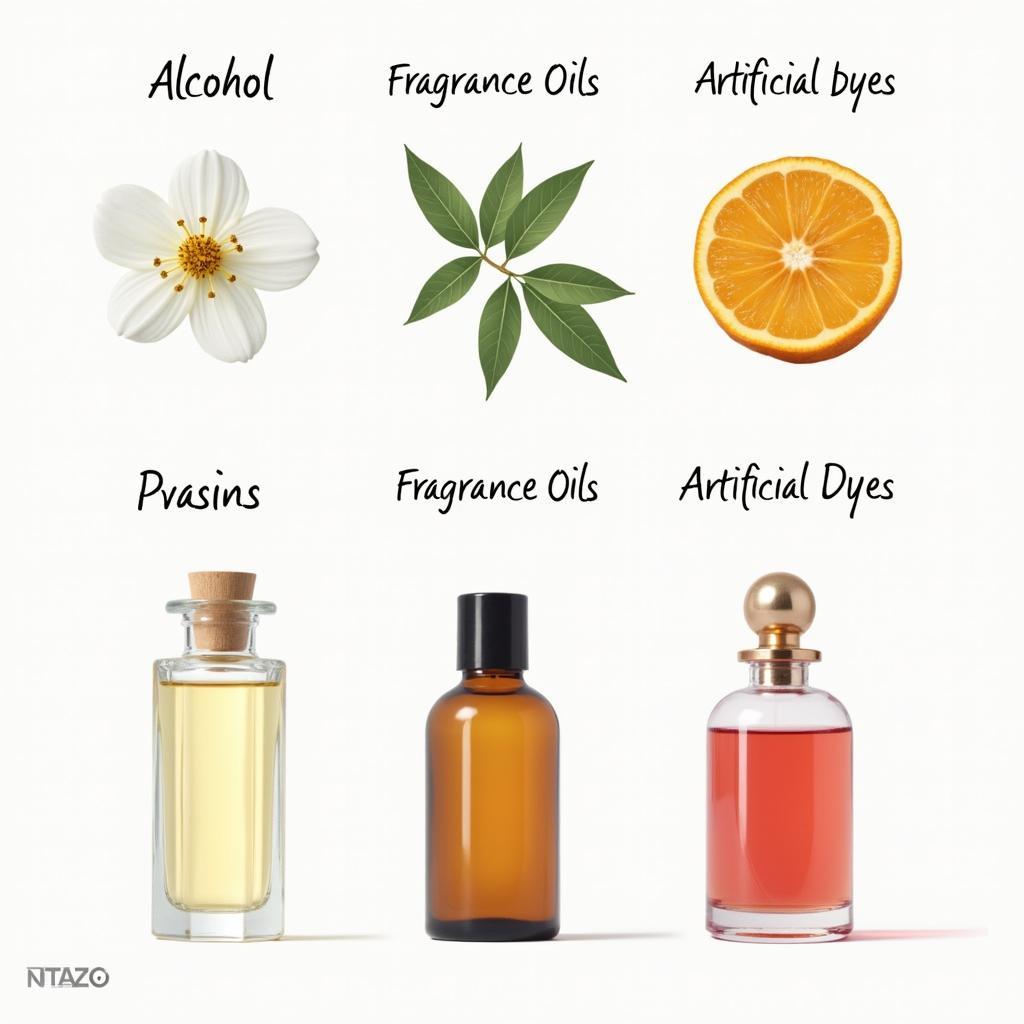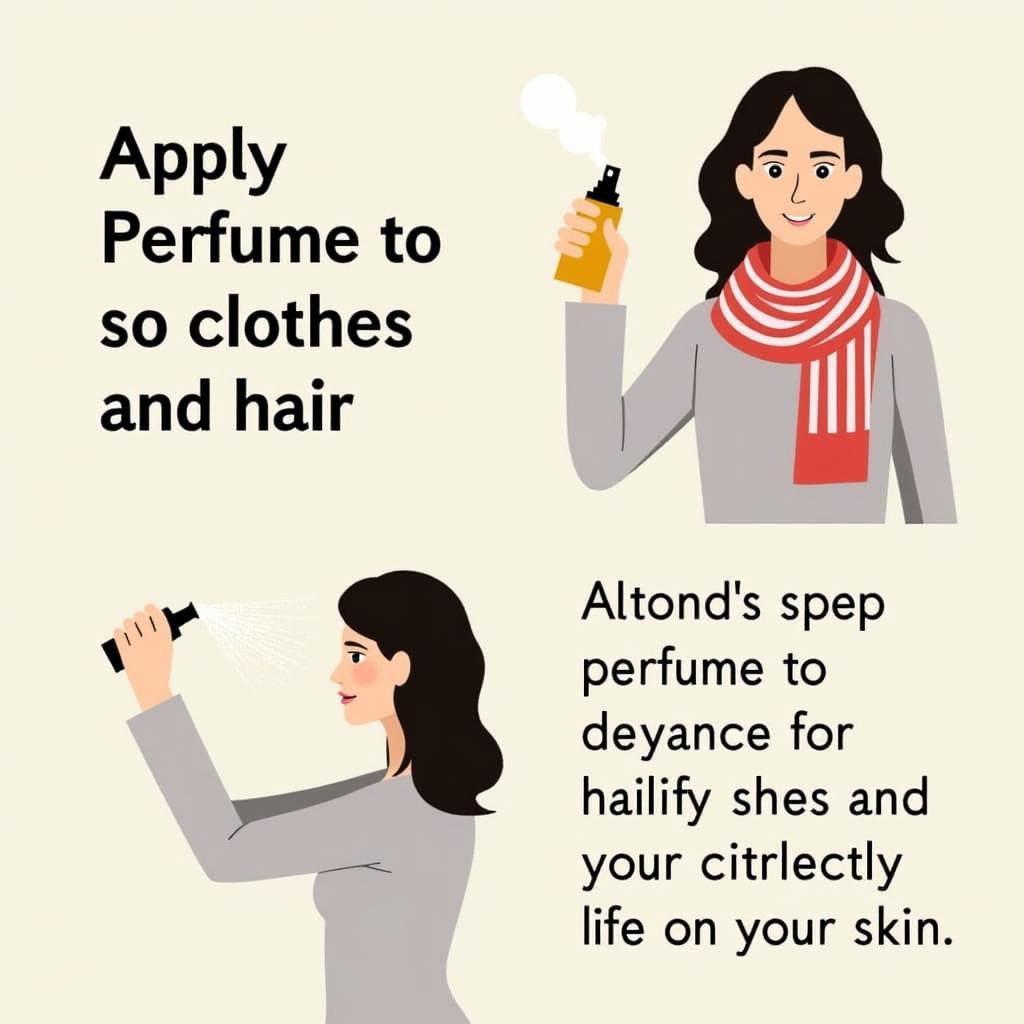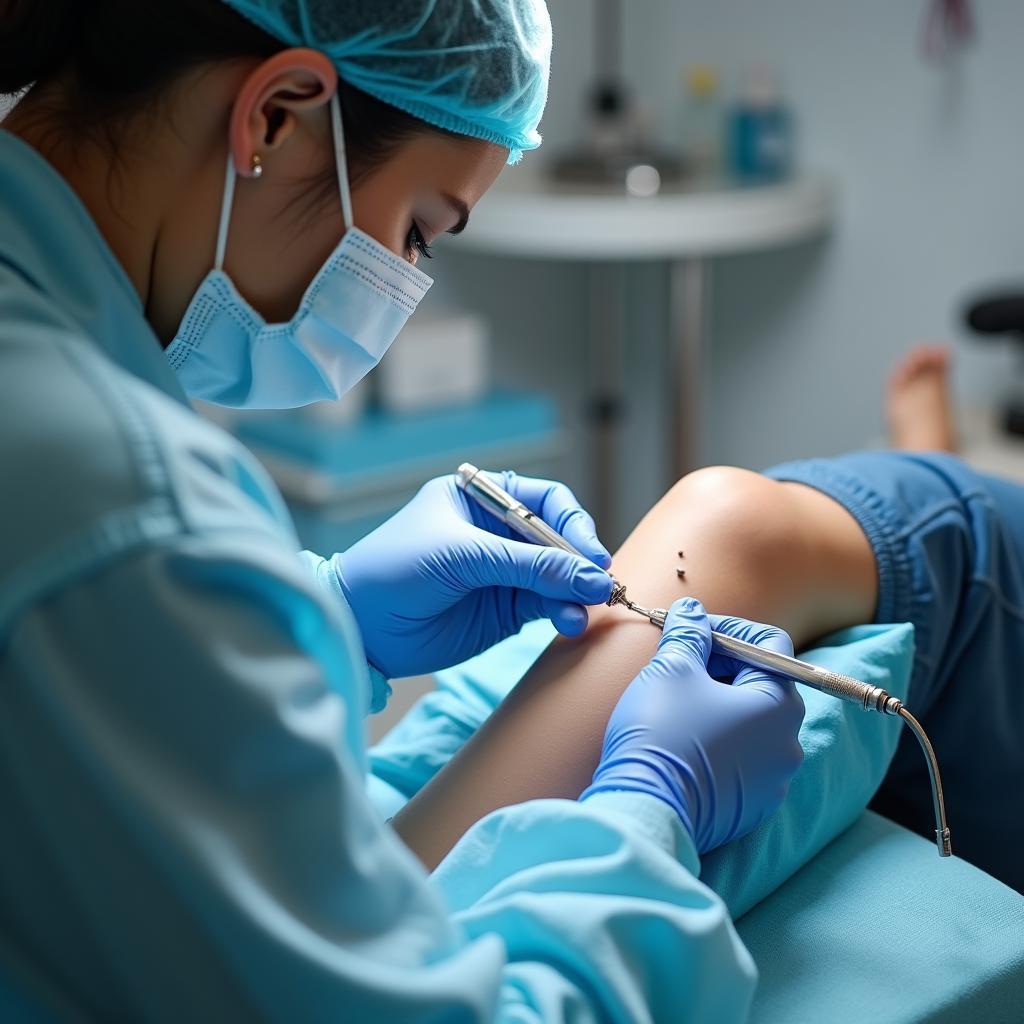
Fragrance Acne: How to Tell if It’s From Perfume
- AmazoniaSilva
- Tháng 1 11, 2025
- Zodiac signs
- 0 Comments
Fragrance acne, how to tell if it’s from perfume? That’s a common question for those who love their signature scent but find themselves battling breakouts. This article dives deep into the link between fragrances and acne, helping you identify the culprit and reclaim clear skin without sacrificing your favorite perfumes.
Is Your Perfume Causing Breakouts? Identifying Fragrance Acne
Many perfumes contain ingredients that can irritate the skin and trigger acne, particularly in those with sensitive or acne-prone skin. These ingredients can clog pores, leading to inflammation and the development of pimples, whiteheads, or blackheads, often appearing around the neck, chest, or face where perfume is commonly applied. But how can you be sure it’s your perfume and not something else?
Common Culprits in Fragrance-Induced Acne
Several ingredients commonly found in fragrances can cause acne:
- Alcohol: Often used as a solvent, alcohol can dry out the skin, disrupting its natural barrier and making it more susceptible to irritation and breakouts.
- Fragrance Oils: While these oils give perfumes their alluring scents, some, like those derived from citrus fruits, can be phototoxic, meaning they can cause skin reactions when exposed to sunlight. Others can simply be irritating to sensitive skin.
- Artificial Colors and Dyes: These additives can contribute to skin irritation and inflammation, exacerbating acne.
 Common Fragrance Irritants
Common Fragrance Irritants
How to Pinpoint Perfume as the Acne Trigger
So, how can you tell if your perfume is the problem? Here are some telltale signs:
- Breakouts in Perfume Application Areas: Notice new pimples popping up on your neck, chest, or wrists shortly after applying perfume? This is a strong indicator that your fragrance might be the culprit.
- Acne Clears Up When You Stop Using Perfume: If your acne improves significantly after taking a break from your fragrance, it’s another clue that your perfume is the likely culprit.
- Patch Test: Apply a small amount of perfume to a small area of skin on your inner arm. Cover the area with a bandage and leave it for 24-48 hours. If you experience redness, itching, or bumps, your skin is likely sensitive to the fragrance.
Decoding the Ingredients List: What to Look Out For
Understanding the ingredients in your perfume can help you identify potential acne triggers. Look for terms like “fragrance,” “parfum,” or “essential oil blend.” These terms can often mask a complex mixture of ingredients that can be irritating to the skin.
Fragrance Acne Solutions: Clear Skin and Sweet Scents
You don’t have to choose between clear skin and a beautiful fragrance. Here are some solutions:
- Opt for Fragrance-Free Products: Switch to fragrance-free deodorants, lotions, and other skincare products to minimize skin irritation.
- Choose Lighter Fragrances: Opt for lighter, fresher scents that are less likely to contain irritating ingredients.
- Apply Perfume Strategically: Apply perfume to your clothes or hair instead of directly on your skin.
Expert Insights on Fragrance and Skin Health
Dr. Anya Sharma, a leading dermatologist, advises, “For individuals with acne-prone skin, it’s crucial to be mindful of the ingredients in their fragrances. Patch testing is a simple yet effective way to determine if a specific fragrance is causing irritation.” Another expert, Dr. David Chen, adds, “Choosing fragrances with natural ingredients and avoiding those with harsh chemicals can significantly reduce the risk of fragrance-induced acne.”
 Tips for Applying Perfume
Tips for Applying Perfume
Conclusion: Reclaiming Your Skin and Your Scent
Fragrance acne, how to tell if it’s from perfume? By understanding the common culprits and adopting a few simple strategies, you can enjoy your favorite scents without compromising your skin’s health. Remember, a little detective work and a few adjustments can make all the difference in achieving clear, healthy, and beautifully scented skin.
FAQ
- Can natural perfumes cause acne? Yes, even natural ingredients can irritate sensitive skin.
- Is fragrance-free the same as unscented? Not always. Unscented products may contain masking fragrances.
- Should I see a dermatologist for fragrance acne? If your acne is persistent or severe, consulting a dermatologist is recommended.
- Are there any hypoallergenic perfumes? Some brands market hypoallergenic perfumes, but it’s still essential to patch test.
- How long does it take for fragrance acne to clear up? This varies depending on the severity and individual skin type.
- Can I still wear perfume if I have sensitive skin? Yes, but choose wisely and apply strategically.
- What are some alternatives to traditional perfumes? Consider fragrance-free body oils or lotions.
Need more help? For further assistance, contact us at [email protected] or visit our office at Fifth Avenue, 34th Floor, New York, NY 10118, USA. We have a 24/7 customer support team.


